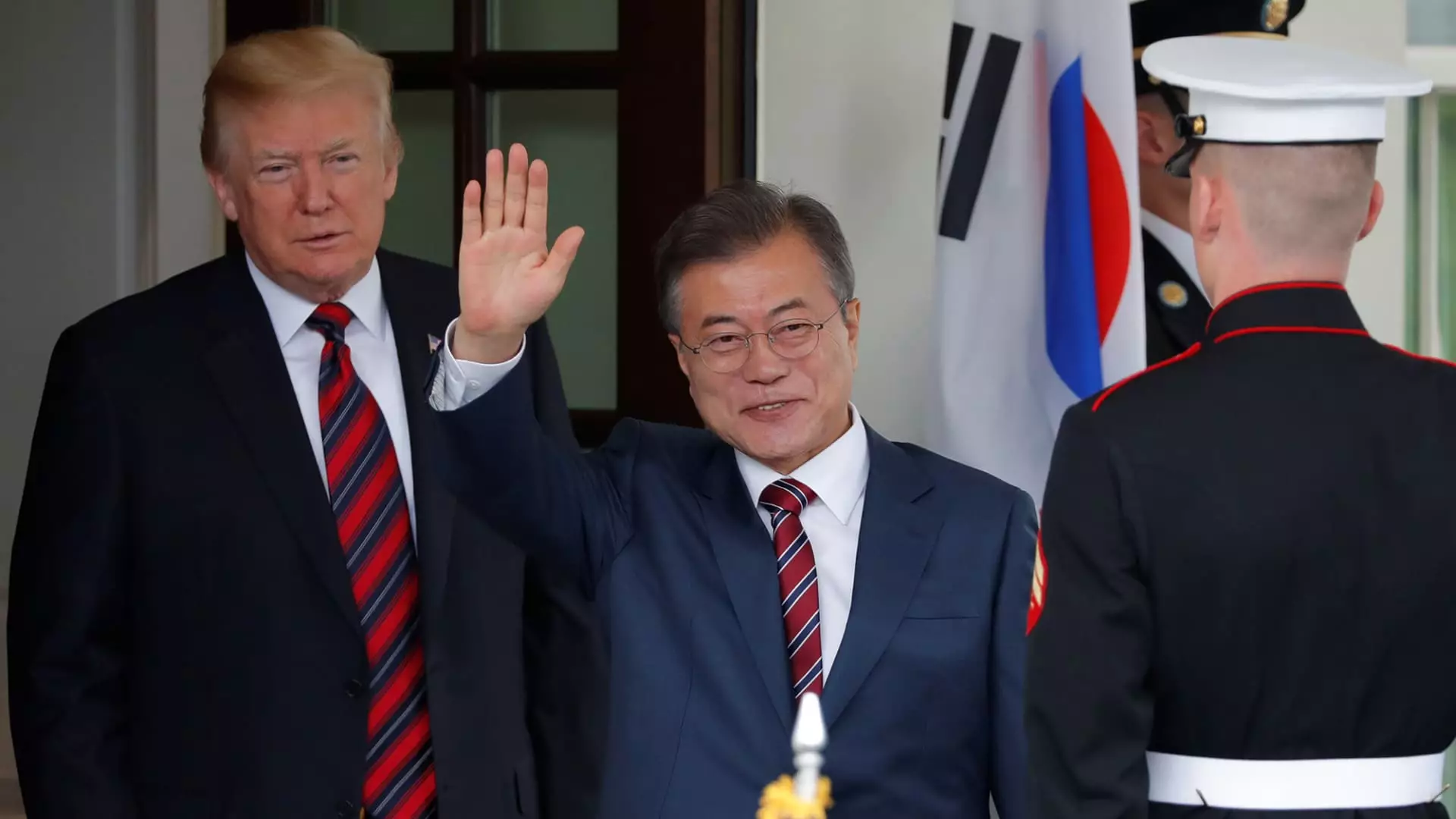As the specter of increased tariffs looms over global trade relations, the U.S. automotive sector is bracing for potentially significant upheaval, particularly regarding imports from South Korea and Japan. President Donald Trump’s advocacy for tariffs raises critical questions about the future of auto manufacturing and sales, especially given the roles these East Asian nations play in supplying vehicles to the American market.
In analyzing the current automotive import statistics, South Korea and Japan represent substantial contributors to the U.S. auto market, accounting for a combined 16.8% of all vehicles sold in the United States last year. With South Korea emerging as the second largest exporter of vehicles to the U.S. — boasting a record 8.6% market share — the implications of tariffs on these exports cannot be understated. Japan, historically known for its robust automotive industry, accounted for 8.2% of U.S. vehicle sales. Low or nonexistent tariffs add to the competitive edge both countries enjoy in the American auto market, particularly in contrast to the 25% tariff potentially awaiting Canada and Mexico.
Effects of Tariff Policy on South Korean Automakers
The impact of increased tariffs would be felt acutely by South Korean automakers like Hyundai and its sister company, Kia. This is largely due to their significant export volumes to the U.S. market, where they enjoy favorable tariff conditions. Expert analyses suggest that Hyundai stands to lose financially from any new tariffs, especially since it outpaced Japan in automobile exports to the U.S. in recent years. The automotive industry’s reliance on global supply chains makes it exceptionally vulnerable to tariff fluctuations. If prices increase for South Korean vehicles, American consumers may face heightened costs, potentially leading to reduced demand or a shift in purchasing behavior toward domestic or lower-cost alternatives.
General Motors (GM), while a longstanding American automaker, has been increasingly importing vehicles from South Korea. Sales from these imports rose sharply from 173,000 vehicles in 2019 to over 407,000 vehicles last year, highlighting the intertwined nature of U.S.-Korean automotive relationships. The expansion of GM’s market share in the entry-level vehicle segment is a testament to this partnership, but it also raises concerns about the risk of tariffs disrupting this burgeoning trade.
Currently, vehicles imported from Japan face a relatively small tariff of 2.5%, which becomes a factor when considering potential increases. Notably, the primary concern is that if tariffs reach double-digit levels, the resulting complications could significantly impact vehicle prices and automakers’ profit margins. Such a shift would not only affect the pricing calculus for manufacturers but could also shift consumer sentiment and purchasing patterns.
Moreover, beyond passenger automobiles, trucks imported from these regions face a steeper 25% tariff. The financial burden associated with these tariffs can ultimately be passed onto the consumer, compounding existing challenges within an industry already contending with supply chain disruptions post-pandemic.
During heated discussions on tariff reform, industry leaders, including Ford’s CEO Jim Farley, have advocated for a more balanced approach. Farley argues that any tariff policies enacted must encompass a broader view that includes all importing nations, thereby creating a uniform playing field in the automotive market. Cherry-picking target countries could disadvantage certain manufacturers while favoring others, creating an inefficient and inequitable market environment.
These discussions around tariffs trigger a more profound consideration of free trade principles and their role in shaping the automotive industry. Terence Lau, a trade expert and former Ford employee, asserts that while the automotive industry can adapt, it does so at a measured pace. A sudden spike in tariffs could be detrimental, not just to automakers, but to a multitude of stakeholders including workers, suppliers, and consumers.
Looking Ahead: Uncertainties and Market Adjustments
As discussions around the implementation of reciprocal tariffs continue to unfold, the broader implications for the automotive industry remain fraught with uncertainty. The upcoming announcements regarding which countries may fall under increased tariff scrutiny will undoubtedly signal shifts in market dynamics. Automakers and consumers alike must prepare for a potential recalibration of pricing, production, and ultimately consumer behavior.
In sum, while tariffs may serve as a leverage tool in trade negotiations, their broader impact on markets, consumer choices, and economic relationships cannot be overlooked. The automotive industry, intrinsically linked to global trade, finds itself at a crucial crossroads, one that will require adaptability and foresight in navigating the complexities of the evolving landscape.


Leave a Reply